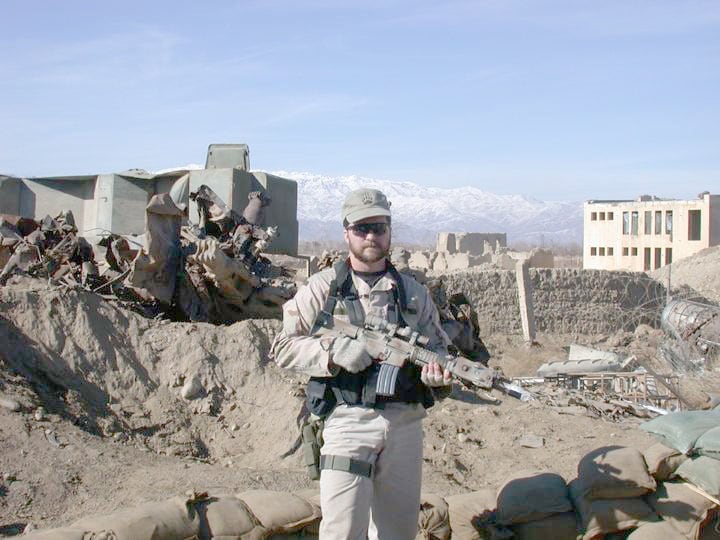An Air Force combat controller who was killed during a fierce firefight with al Qaida militants in Afghanistan in 2002 deserves the nation's highest honor for battlefield bravery, Rep. Duncan Hunter, R-California, said in a letter Monday.
The New York Times on Saturday reported that Air Force Secretary Deborah Lee James has recommended the Air Force Cross awarded to Technical Sgt. John Chapman for his heroism during the Battle of Roberts Ridge be upgraded to the Medal of Honor. If Defense Secretary Ash Carter does upgrade Chapman's award, it would be the first Medal of Honor awarded to an airman since the War on Terror began.
Bolstering the Air Force's case, the Times reported, is newly enhanced video from a Predator drone that the service believes shows Chapman was unconscious, but not dead, when a team of Navy SEALs retreated from the battle under withering fire.
The SEALs withdrew, thinking the wounded Chapman had been killed. But according to the Times, new technology that allowed a deeper analysis of video of the battle suggest Chapman regained consciousness and resumed fighting al Qaida members who were coming toward him from three directions. Chapman may have crawled into a bunker, shot and killed an enemy charging at him, and then killed another enemy fighter in hand-to-hand combat.
The Times also reported that the Air Force believes Chapman exposed himself to provide covering fire to a Chinook helicopter carrying Army Rangers, which was hit by a rocket-propelled grenade. According to the Air Force's analysis, Chapman was then killed by two machine gun bullets to the chest, the Times reported.
The Times said the Air Force's autopsy analysis found medical evidence supporting the theory that Chapman woke up and continued fighting -- particularly the angle of the fatal bullets, which the Air Force said would have been impossible if he had been killed where the SEALs thought he fell. The new autopsy analysis also said he could only have received bruises on his forehead if he was alive, which the Air Force believes shows he was knocked unconscious, the Times said.
Air Force Special Operations Command said that due to Defense regulations, it could not discuss Chapman's case before it is publicly announced.
But last September, AFSOC commander Lt. Gen. Bradley Heithold said in an interview with Air Force Times that he planned to recommend one of the seven airmen who had been awarded the Air Force Cross since Sept. 11 receive the Medal of Honor. Heithold would not identify the airman, but said AFSOC had found new information that supported the case for upgrading him.
And in January, Carter ordered the services to review its Distinguished Service Cross, Navy Cross, Air Force Cross and Silver Star recommendations from Iraq and Afghanistan to see if any troops should receive a higher medal recognizing their valor.
In his letter to James, Hunter expressed his support for the Air Force's effort to upgrade Chapman to the Medal of Honor.
"The Air Force is right to identify that Sgt. Chapman's heroism is in the spirit and tradition of the Medal of Honor," Hunter wrote. "Sgt. Chapman is an American hero who demonstrated courage and selflessness against extraordinary odds and certain death."
Hunter also acknowledged the controversial nature of this case, and the question of whether the SEALs left a still-living comrade behind, but said "the new video evidence should eliminate any doubt that Sgt. Chapman was dead, but in fact was engaging the enemy."
"The account of the Navy SEALs fighting alongside Sgt. Chapman can only be explained as their best judgment amid the intensity of a firefight," Hunter said. "However, that initial determination should now be superseded by the new evidence."
Stephen Losey is the air warfare reporter for Defense News. He previously covered leadership and personnel issues at Air Force Times, and the Pentagon, special operations and air warfare at Military.com. He has traveled to the Middle East to cover U.S. Air Force operations.




